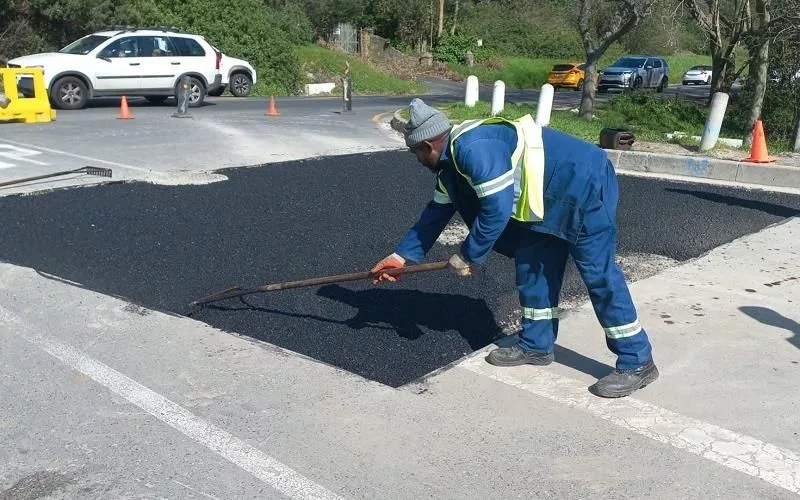South Africa’s Black Economic Empowerment and Affirmative Action policies are under fire for favoring those with political ties and leaving the majority of black South Africans economically disadvantaged. Critics argue that these policies obstruct economic progress and perpetuate the cycle of economic hardship. Recent legal rulings challenge the use of BEE as a criterion for aid, calling for a major overhaul of these initiatives for economic stability and growth. With the country’s unemployment rate exceeding 44%, there is a growing call for a more inclusive and effective economic policy.
Unraveling the Controversy Surrounding South Africa’s Black Economic Empowerment and Affirmative Action Policies: What is the controversy surrounding South Africa’s Black Economic Empowerment and Affirmative Action policies? Critics argue that these policies obstruct economic progress and favor those with political ties, leaving the majority of black South Africans economically disadvantaged. The AA policy, introduced in 1998, has also been met with resistance and calls for reconsideration. Recent legal rulings challenge the use of BEE as a criterion for aid and call for a major overhaul of these initiatives for economic stability and growth.
Section 1: The South African Economic Debate
South African politics are abuzz with discussions revolving around the Black Economic Empowerment (BEE) and Affirmative Action (AA) policies. Recently, these policies came under fire during a Parliamentary debate on financial strain mitigation, by the Freedom Front Plus, a political group. The group contends that these policies obstruct economic progress and do more harm than good.
The focus of this contentious issue is the BEE, a policy introduced to overhaul the control and ownership structure of the economy. However, questions are being raised about its effectiveness. The policy is accused of favoring those in political power, while the majority of black South Africans are left economically disadvantaged. This viewpoint was expressed by anti-apartheid activist Barbara Hogan in 2022, who claimed that the BEE policy is exclusive and favors only those with political ties, leaving the majority of black South Africans in an economically disadvantaged state.
Philip van Staden, a Freedom Front Plus parliament member, reiterates this sentiment. He argues that this policy, put into action by the African National Congress (ANC) when it first gained control, has only fueled favoritism, thereby straining the economy and pushing people towards poverty. In his opinion, the remedy for rising living costs is secure employment and a stable income.
Section 2: Factual Backing and Additional Debate
To substantiate his argument, Van Staden cites a survey conducted by a financial institution. The survey found that over half of South Africans are currently unable to save, while nearly a third don’t have any retirement plans. Furthermore, 11% of the population spend more than they earn, leading to a reliance on debt.
The AA policy, another key player in workplace transformation efforts, has also been met with resistance and calls for reconsideration since its introduction in 1998. Critics claim the policy hasn’t succeeded in its mission to transform workplaces, and instead, continues to perpetuate the cycle of economic hardship for the majority.
This discourse isn’t limited to just the political sphere. Numerous businesses and other political parties, such as the Democratic Alliance (DA) and ActionSA, have also demanded a reevaluation of these policies, arguing that they are discriminatory.
Section 3: Legal Implications and Future Considerations
In 2023, this viewpoint was legally recognized when the Constitutional Court ruled the Department of Tourism’s Tourism Equity Fund to be discriminatory and unlawful. The fund, which provided financial assistance only to majority black-owned businesses, was considered biased. This ruling, favoring both AfriForum and Solidarity, followed the 2021 Supreme Court of Appeal’s verdict that using BEE as a criterion for aid from the Tourism Equity Fund was illegal.
The Fund, initiated in 2020 during the Covid-19 pandemic peak by then Tourism Minister Mmamoloko Kubayi, designated loans and grants exclusively for businesses with a minimum of 51% black ownership. However, the Constitutional Court’s ruling disrupts this policy, challenging the use of BEE as a criterion for aid.
The ongoing debates surrounding these policies reflect a complex mix of economic, social, and political perspectives. Critics advocate for a major overhaul of these initiatives, arguing that it’s imperative for economic stability and growth, as well as the protection of the rights and interests of all South Africans.
Section 4: The Call for Change
With South Africa’s unemployment rate exceeding 44% and youth unemployment surging past 64%, the call for a more inclusive and effective economic policy is growing louder. While the Government of National Unity (GNU) offers a glimpse of hope, the need for more decisive action and innovative solutions to create more jobs and ensure financial stability is more crucial than ever.
-
What are South Africa’s Black Economic Empowerment and Affirmative Action policies?
South Africa’s Black Economic Empowerment (BEE) and Affirmative Action (AA) policies were introduced to transform the ownership and control structure of the economy, as well as to address past inequalities. BEE requires companies to meet certain criteria, such as black ownership and management, to qualify for government contracts and funding. AA aims to promote diversity in the workplace by giving preference to historically disadvantaged groups, including black South Africans, women, and people with disabilities. -
What is the controversy surrounding these policies?
Critics argue that these policies obstruct economic progress and perpetuate the cycle of economic hardship by favoring those with political ties and leaving the majority of black South Africans economically disadvantaged. Recent legal rulings challenge the use of BEE as a criterion for aid, calling for a major overhaul of these initiatives for economic stability and growth. -
What is the Freedom Front Plus’s stance on these policies?
The Freedom Front Plus, a political group, contends that these policies obstruct economic progress and do more harm than good. They argue that the BEE policy, put into action by the African National Congress (ANC), has only fueled favoritism, thereby straining the economy and pushing people towards poverty. In their opinion, the remedy for rising living costs is secure employment and a stable income. -
What is the AA policy, and why is it controversial?
The AA policy, another key player in workplace transformation efforts, aims to promote diversity in the workplace by giving preference to historically disadvantaged groups, including black South Africans, women, and people with disabilities. However, it has been met with resistance and calls for reconsideration since its introduction in 1998. Critics claim the policy hasn’t succeeded in its mission to transform workplaces and instead continues to perpetuate the cycle of economic hardship for the majority. -
What recent legal rulings challenge the use of BEE as a criterion for aid?
In 2023, the Constitutional Court ruled the Department of Tourism’s Tourism Equity Fund to be discriminatory and unlawful. The fund, which provided financial assistance only to majority black-owned businesses, was considered biased. This ruling, favoring both AfriForum and Solidarity, followed the 2021 Supreme Court of Appeal’s verdict that using BEE as a criterion for aid from the Tourism Equity Fund was illegal. -
What is the call for change regarding these policies?
With South Africa’s unemployment rate exceeding 44% and youth unemployment surging past 64%, the call for a more inclusive and effective economic policy is growing louder. Critics advocate for a major overhaul of these initiatives, arguing that it’s imperative for economic stability and growth, as well as the protection of the rights and interests of all South Africans.












